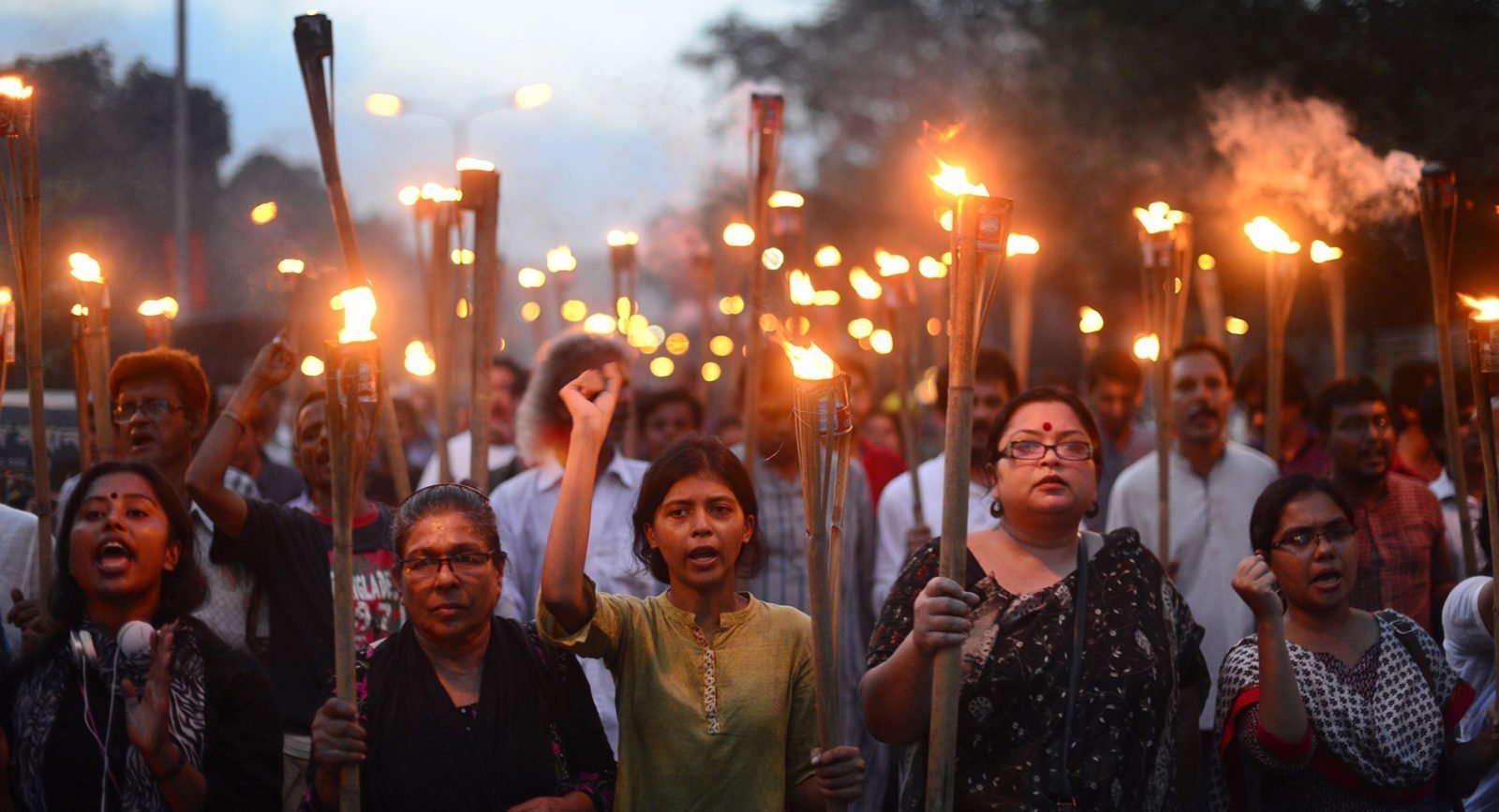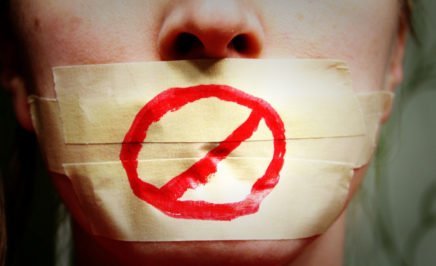The Bangladeshi government has not only failed to protect dissenting voices or hold accountable the armed groups that threaten them, it has also stifled freedom of expression through a slew of repressive tactics and new laws, according to a new Amnesty International report.
The report, Caught between fear and repression: Attacks on freedom of expression in Bangladesh, documents how armed groups have thrived in a climate of impunity, carrying out a high-profile spate of killings of secular bloggers with few consequences. In four years, only a single case has resulted in convictions.
Activists also regularly receive death threats, forcing some of them to leave the country for their own safety, while the authorities have refused to offer them protection.
Over the last year, the Bangladeshi government has also intensified its crackdown on public debate and criticism, harassing media workers, interfering with their work, and bringing criminal charges against them under draconian laws.
“Between the violence of armed groups and state repression of the state, secular voices in Bangladesh are being consistently silenced. Not only is the government failing to protect people’s freedom of expression, it has been blaming them for the threats they face and criminalizing the work of bloggers and journalists through a slew of repressive laws,” said Olof Blomqvist, Amnesty International’s Bangladesh researcher.
Blaming the victims
After the online activist Nazimuddin Samad was hacked to death near his university campus in Dhaka in April 2016, the government sought to blame the tragedy on him. The Home Minister Asaduzzaman Khan Kamal said the police would scrutinise his writings for “objectionable” content. Meanwhile, Prime Minister Sheikh Hasina denounced the work of secular writers as “filthy words”.
In several other cases, activists told Amnesty International the police refused to register their complaints about threats they received. In other instances, the police suggested the victims should leave the country, or even began harassing them for writing on “secular topics”.
One secular blogger, who received more than a dozen death threats by phone and on social media, told Amnesty International: “I made several attempts to get some help, but [to] my face they refused to help me.”
Meanwhile their attackers have been able to enjoy almost complete impunity. Since the Awami League government was re-elected in 2014, only one case resulted in convictions – eight alleged members of Ansar al-Islam were found guilty in December 2015 for their role in an attack.
This has brought a climate of fear in Bangladesh’s once-vibrant civil society, who now resort to self-censorship.
There are now “red lines” that journalists are careful not to cross. Few dare publish reports that may be deemed critical of Prime Minister Sheikh Hasina or her family, knowing that they could be shut down without explanation or have pressure brought to bear on their advertisers.
Speaking to Amnesty International, journalists described the repression as the worst they’ve endured since Bangladesh returned to civilian rule in 1991. There are now “red lines” that journalists are careful not to cross. Few dare publish reports that may be deemed critical of Prime Minister Sheikh Hasina or her family, knowing that they could be shut down without explanation or have pressure brought to bear on their advertisers.
“The Bangladeshi government treats journalism as if it were a crime. Through imprisonment, threats, intimidation, and constant interference in their work, Bangladesh’s government has done all it can to silence critical voices in the media,” said Olof Blomqvist.
Repressive laws
The 2006 Information and Communications Technology (ICT) Act, which carries a minimum sentence of seven years, is seen as the principal instrument to muzzle critical voices in the country. Its vaguely worded clauses empower the authorities to prosecute people “in the interest of sovereignty, integrity or security of Bangladesh” or if they are deemed to “prejudice the image of the State” or “hurt religious belief”.
The government has used the draconian law to silence criticism in the media by bringing criminal charges against journalists for simply doing their work. In December 2016, Nazmul Huda, a print and television journalist, was arrested, viciously beaten in custody and then charged under the ICT Act for covering protests by garment workers outside Dhaka.
The government has used the draconian law to silence criticism in the media by bringing criminal charges against journalists for simply doing their work. In December 2016, Nazmul Huda, a print and television journalist, was arrested, viciously beaten in custody and then charged under the ICT Act for covering protests by garment workers outside Dhaka.
In 2013, the government also used the ICT to bring criminal charges against four secular bloggers for allegedly “hurting religious sentiments”.
Since 2013, several high-profile journalists and editors have been subjected to politically-motivated criminal charges. Most of them have been associated with media outlets that are critical of the government or supportive of the political opposition.
One journalist told Amnesty International: “The government has picked a few individuals to make examples out of. This has been to instil fear in other media, to show what happens when you cross the line.”
In one instance, Awami League supporters filed a flurry of 83 politically motivated cases against Mahfuz Anam, editor of Bangladesh’s The Daily Star newspaper.
Shafik Rahman, an elderly opposition supporter and the editor of the weekly Mouchake Dil magazine, was held in solitary confinement for over three weeks on a trumped-up charge of “conspiring to abduct and assassinate” ruling party politician Sajib Wazed Joy.
Bangladesh’s authorities have frequently invoked archaic, colonial-era criminal defamation and sedition laws against critical journalists.
The authorities are also now proposing new laws, such as a Digital Security Act and Liberation War Denial Crimes Act. If enacted, these laws would impose further restrictions on freedom of expression by creating new criminal offences, sometimes using national security as a cover.
“The crackdown on dissent and secular thought in Bangladesh must end. The very first steps must include providing protection to those who are threatened for raising their voices, and to repeal or reform the draconian laws that are used to punish anyone voicing inconvenient opinions,” said Olof Blomqvist.




